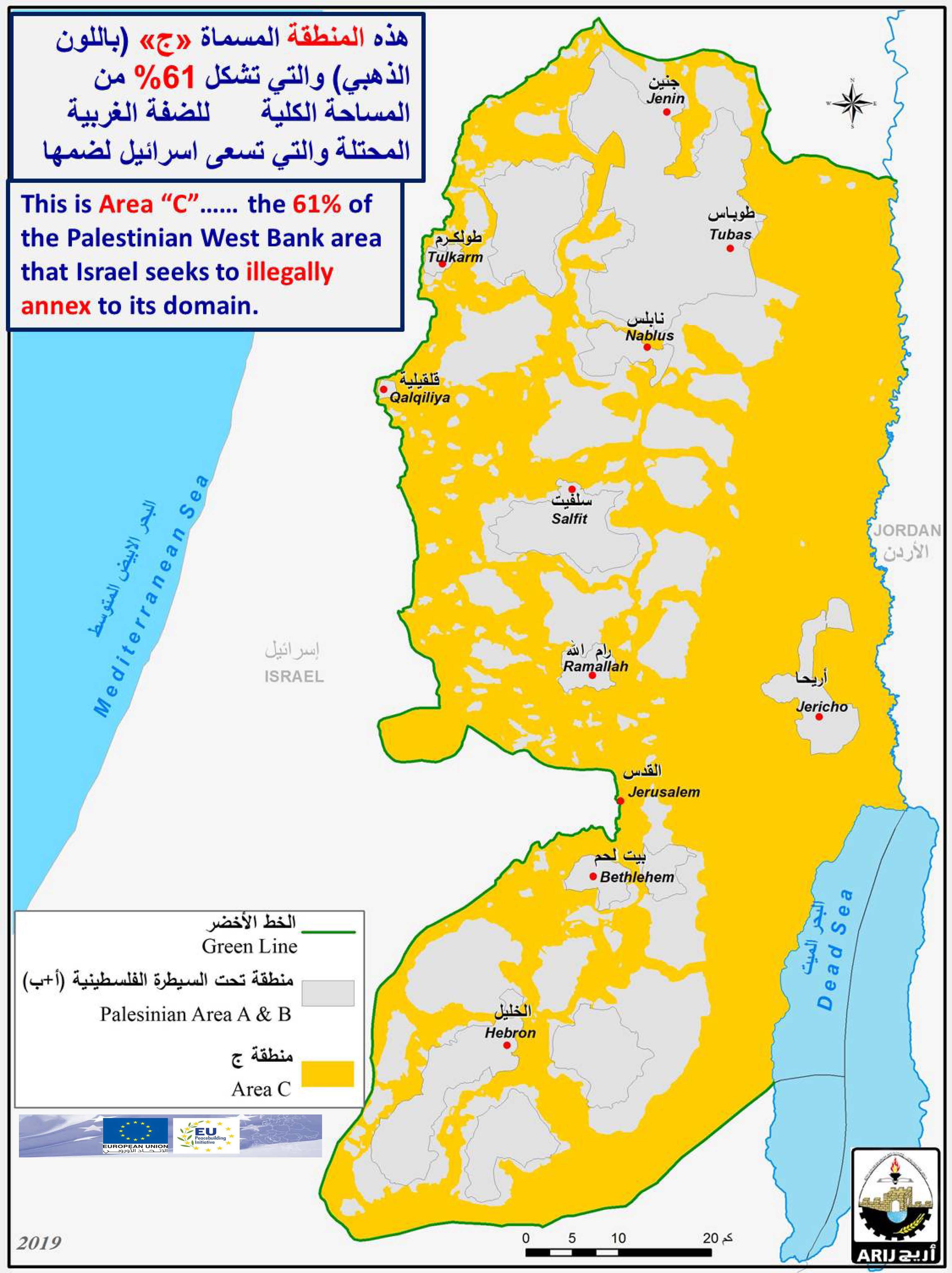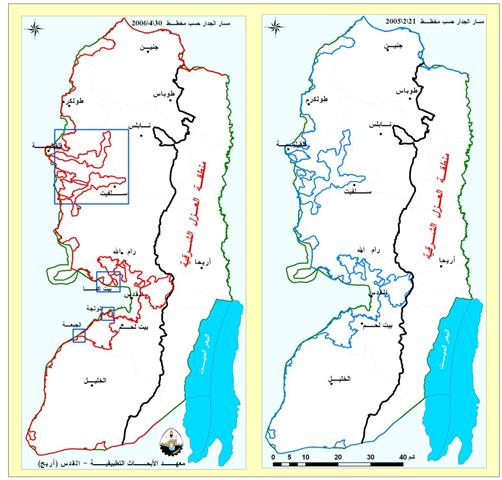May 24, 2006, marked the first trip made by Israel's newly elected prime minister, Ehud Olmert to the United States; which is a tradition carried out by every elected prime minister of Israel to visit the White House and address Members of the US Congress, which in Olmert's case has harvested him 38 rounds of applause, 18 of them standing ovations. Olmert's trip was all about political conquests and recognition. During his speech; Olmert has made it abundantly clear that he is the legitimate succor to Ariel Sharonâ??s legacy and vision and similar to his mentor and his predecessors prime ministers during the peace process timeline. Olmertâ??s speech included the clichés of every Israeli PM: Israelâ??s quest to live in peace, combat terrorism and the lack of a Palestinian partner longing for peace.
The US President on his turn restated the full US support for Olmert and Israel and went even further to praise Olmert's convergence plan, but stopped at endorsing unilateral steps; emphasizing that negotiations is the best way to settle the Israeli-Palestinian conflict; marking in this regard the Palestinian President Mahmud Abbasâ??s call for immediate negotiations for final status issues. President Bush's explicit stand on the Israeli convergence plan, that it can only be implemented through negotiations was anticipated and articulated by Olmert in a CNN program 'Late Edition' interview on May 21 when he said: 'I also prefer negotiations. There is nothing that I'd love to do more than negotiate with Palestinians. This is my desire. This is my dream. This is my mission.'
On this issue, neither Israel nor the US had anything new to add on the subject, as neither of them were willing to realize that Hamasâ??s refrain to meet Israel and the US demands on the subject of recognizing Israel and renouncing of violence are paradox as long as Israel is unwilling to recognize the Palestinians' right to establish their Palestinian State on the territory occupied by Israel during the 1967 war. Previous Palestinian governments; recognized Israel and renounced violence but got nothing in return; instead President Bush in a joint press conference with Israel's former PM Sharon on April 14, 2004; similar to that one he had with Olmert on May 24 2006; cut short the Palestinian's dreams of an independent contiguate State when he described the Israeli settlements as a 'reality' which the Palestinians have to except and that it is no longer conceivable that Israel return to the 1949 Armistice Line; known as the Green Line.
In light of new realities on the ground, including already existing major Israeli population centers, it is unrealistic to expect that the outcome of final status negotiations will be a full and complete return to the armistice lines of 1949, and all previous efforts to negotiate a two-state solution have reached the same conclusion. It is realistic to expect that any final status agreement will only be achieved on the basis of mutually agreed changes that reflect these realities.
A clip from the statement made by President Bush after meeting with Israel's PM Sharon, April 14, 2004
In his address before the US congress and during his meeting with President Bush, Olmert aimed to explain and show that Israel's pursue to disengage from the West Bank and unilaterally demarcate its permanent borders; are in fact interrelated steps leading ultimately to realize the road map rather than preclude it. Olmert went even further in presenting his ideas to move forward with the peace process as an alternative to a stand still peace process in case the Palestinians do not meet the terms set by Israel; to become an eligible partner for peace â?? and could ultimately lead to a two state solution.
Sharon is 'Historic' and Olmert is 'Bold'
With these words, the US president described the ideas of the Israeli PM and his predecessor, toward peace with the Palestinians; however, Olmert was looking to score similar commitments on his part from President Bush; supplements to those secured by Sharon from president Bush; to retain within Israeli borders the major settlement blocs in the West Bank along with its population of nearly 400,000 Israeli settlers and the US backing Israel's position to annul the Palestinians refugees right to return to pre-1967 Israel. Olmert will continue his attempts to secure these commitments:
-
To secure US endorsement to the unilateral border demarcation in the West Bank; in other words to sanction the Segregation Wall as a political border,
-
To secure a non-opposition stand to build new settlement blocs or expand existing ones located behind the Segregation Wall,
-
To back Israel in any military action retaliation against Palestinian
Olmert Recapitulate in Europe
In Europe, Olmert had no high hopes to start with during his tour as the European stance reflected reservations to the Israeli prior proclamation for the convergence plan and not withdrawing from the 1967 occupied territory, all which caused to make Olmert's trip to Europe deficient in results. Olmert expressed while meeting with several European counterparts Israeli willingness to withdraw from most of the occupied territory in the West Bank to make room for Palestinians to establish their State. However, Olmert did not come on to what his or Israel's definition of the word 'most' constitutes. During a meeting with a group of British parliamentarians (June 14, 2006) Olmert made it quite clear that Israel will remain in areas in the occupied West Bank that would serve its interests: 'Israel will never agree to withdraw from the entire West Bank, because the pre-1967 borders are not defensible'. Based on the Israeli ongoing unilateral separation plan from the West Bank; the Palestinians would be left with barely 50% of the West Bank area in three or more separate enclaves, which ultimately constitutes nearly 9% of historic Palestine and 35.5% less than what the Palestinians were assigned under the 1947 UN partition plan.
A lesson learned is a lesson gained
The economic and political sanctions imposed by Israel and the international community on the elected Hamas government is not making any sense at a time when Israel is the one end of the peace equation that continues with its constant violations to the peace agreements and the international laws and refuses to desist its aggression against the Palestinian people. The immobilization status of the peace process may not be attributed to Hamasâ??s rise to power in the Palestinian government, but to the fact that Hamas is in disbelief status that any concession on its part; in the sense of showing positive willingness to meet Israel's terms for renegotiations; is worthwhile enough to the Israelis to stir their deadlock position. This had produced certainty within Hamas that unless Israel is willing to give concessions of its own in return for what it asks of Hamas to comply with; Israel will not give anything in return.
The aforementioned is a cogent argument since the former Palestinian government along with the Palestinian President Mahmood Abbas had exhibited and extended enormous latitude in the Palestinian position for an entire year prior to the January 2006 election; but still had no pulse in return from the Israeli side.
'No Palestinian Partner' is just one of Israel's Hoaxes
What Israel keeps saying about not finding the desired Palestinian partner became a wear out pretext to elude negotiations and to cut short the Palestinians' dreams of their right to an independent state of their own on 22% of historic Palestine instead of the 45.5% assigned by the United Nations 1947 partition plan. Instead, Israel is barely willing to concede 9% of historic Palestine unless it was scattered and discontiguous land surrounded by Israeli Army controlled area and with no border and air controls. In any case, Israel is unlikely to recommence negotiation with the Palestinians before it completes the construction of the Western Segregation Wall and consolidate its grip on the Eastern Segregation Zone; only then talks of evacuating the remaining insignificant Israeli settlements laying in between the Israeli controlled areas will be possible and negotiation to handover the Palestinians whatever areas the Israelis identify as insignificant to the Israeli state, and the land identified under 'Oslo 2' as area 'C' to establish their long awaited state is likely to happen.
Good for the Road Map and not good enough for final-status agreement
These were the words of the Israeli foreign ministry as quoted in the Israeli newspaper Haaretz regarding the Palestinian leadership under Mahmud Abbas with indication to where the Israeli government is planning to steer the peace process with the Palestinians; more drag outs, more unilateral steps and selective timing to carry out negotiations.
'currently, Abbas is not a partner for a final-status agreement, but he could be a partner for other arrangements, on the basis of the road map's phased process.'
Israeli Foreign Minister Tzipi Livni, Haaretz, June 13, 2006
In fact, the Israeli foreign minister only corroborated in her quote what Israel's PM said to the US President when he praised the President of the Palestinian National Authority but said that he lacks the power and the majority's consensus (even though he was elected with a majority of 62% of the voters) to proceed with the issues if the final status agreement to the end.
Prepared by:
The Applied Research Institute – Jerusalem














